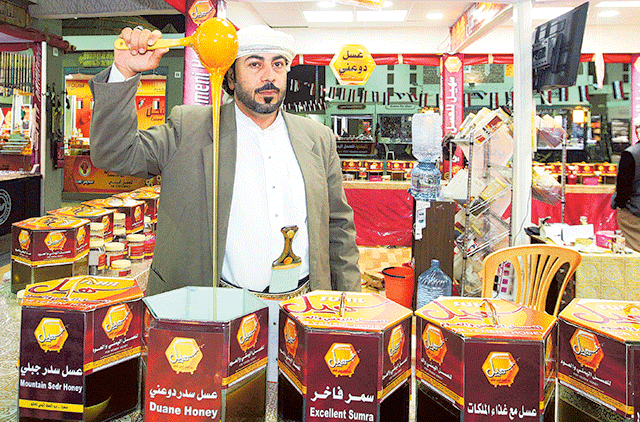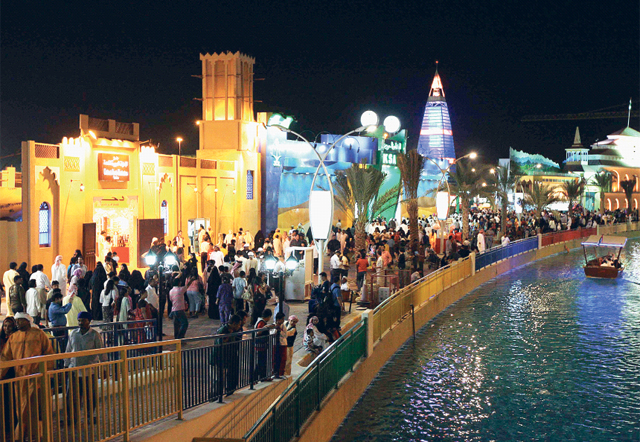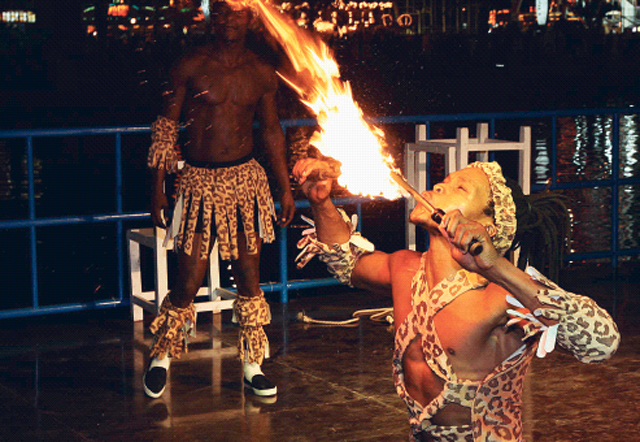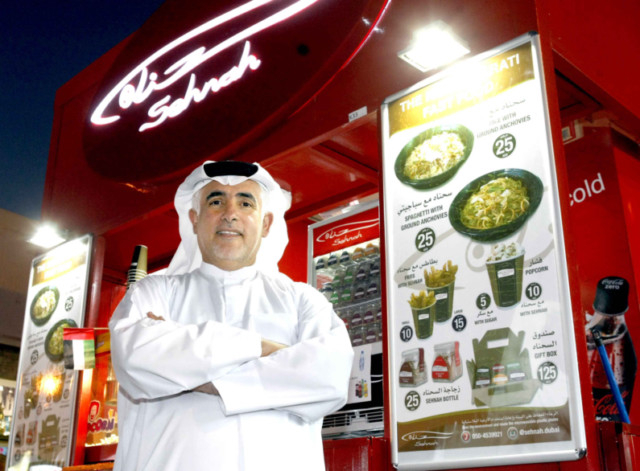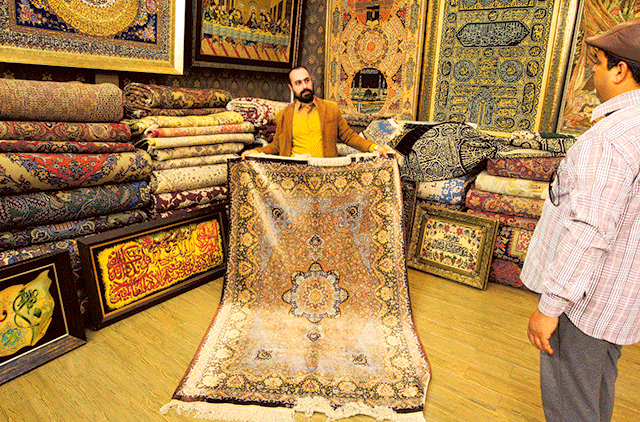
Dubai: They say location can best determine a shop’s following. But Dubai's Global Village, a unique cultural and retail destination, though situated away from the city centre, has had thousands of regular patrons for nearly two decades.
That, shopkeepers say, is what has kept them going.
Global Village, which is one of the main attractions of the Dubai Shopping Festival (DSF) located in Dubailand, has grown significantly over the past 19 seasons.
This region’s largest outdoor theme park and family destination has expanded over the years from hosting just 18 country pavilions in 1997 to 31 pavilions now, representing more than 70 countries.
Much has changed since it first opened to the public but one thing remains — the regular clientele that shops have developed through the years.
Gulf News spoke to the shopkeepers that have been with Global Village from the start, the old-timers as they say, to know how and why they decide to open a shop here every single season.
A matter of trust
For Dr Ali Reza Tarasoli, who has been exhibiting Iranian carpets at the Global Village for 17 years, the answer is simple: customers of Global Village have known and earned their trust through the years.
“We have a shop in Dubai but our shop in Global Village is visited by more people. So in this way, we can teach people about Iranian carpets, about the difference between machine-made and hand-made carpets,” Dr Tarasoli told Gulf News.
Dr Tarasoli, whose family — all eight generations – has been in the carpet industry for the past 379 years, said they have developed good relations with their 1,800 clients through the years, 90 per cent of whom are Emiratis and Iranians who visit Global Village every season.
“Almost every six months they like to change everything. They change their furniture even sometimes. So, when they replace their furniture, they change their carpets as well. That’s why the market may be small, but it’s good,” Dr Tarasoli said.
“We need only one per cent of the entire visitors of Global Village every day to sustain our business. For example, 1,000 guests enter Global Village, I need only 10, that’s enough. It’s actually too much because we can serve only four to five customers in a day.”
Dr Tarasoli said there are about Dh50 million worth of carpets on display from 75 Iranian cities at their Global Village shop. And buyers are abundant.
In fact, business during the seasonal DSF and Global Village has been so good some traders set up home in the UAE. Mohammad Razzaq Khokhar, a Pakistani leather dealer who has been with DSF since its start nearly 20 years ago, is one of them.
“I used to visit DSF from Pakistan and Saudi Arabia to sell leather. I ended up moving here because DSF has been so good to me. Business has grown year on year and I couldn’t afford not to be here,” said Khokhar.
He now has a warehouse in Ajman that is mostly tied to his leather wholesale business. At his four Global Village retail shops in the Pakistan pavilion, Khokhar said his customers are mostly non-Pakistanis.
“Many Emiratis and Indians wait until Global Village opens to do their leather shopping from me, they know what they are buying. The Global Village and Dubai Municipality have done a great job to ensure the leather is genuine and there are no counterfeit brands.”
Leather jackets can cost thousands of dirhams in branded shops in malls but the same quality is available for a few hundred dirhams at Global Village, he added.
“There is a strict grading system in place, from A to D. These are certified and even European clients — bulk buyers — trust this system. Good leather will last you 20 years if you take care of it.”
Khokhar said the “highest quality” leather and skilled craftsmen are available in Pakistan. “I’m bringing that to Dubai, it’s a passion to offer quality at affordable prices.”
Depending on the type, leather grade and size of the product, Khokhar’s prices range from Dh20 to almost a Dh1,000.
Abdul Kareem Mohammad Mohammad Al Bahry, an exhibitor at the Yemeni Pavilion, said there are visitors who come to Global Village for specific products, and theirs is one example — pure honey from the mountains of Yemen.
“We have clients who have been with us for a very long time, right from when we first started out here. And the technique really is to let them have a free taste of the honey we have first. Immediately, they will feel the benefits of the honey, they’ll feel good.”
“Then they’ll come back the next day to buy 1kg. Then their family and friends come too. It’s just through word of mouth,” Al Bahry said, adding that has been the case all through their 15 years with Global Village.
Al Bahry said the steady growth of visitors and the changes at the park have benefited them, although they struggle with rental rates now.
“Everything in Global Village is so much different than before. In the past, there were no maps and no formal regulations. Now there is and it’s very organised. We had only roughly about 30 shops at the Yemeni Pavilion. Now there are 125 shops.”
Kuwaitis top their client list followed by Omanis, Americans and Malaysians. Cidra honey, which sells for Dh1,000 for 1kg and the concoction “Only for Married” couples are best-sellers, too.


